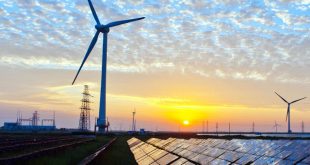That’s the title of my latest piece in Inside Story (republished with a slightly different title in The Canberra Times). It draws on a shorter summary I published here. Read it at Inside Story, and comment here. Share this:Like this:Like Loading...
Read More »Finkel on getting to zero
Former Chief Scientist Alan Finkel, with whom I worked on the Climate Change Authority a few years back, has a new Quarterly Essay, on Getting to Zero (emissions). Some quick observations It’s far too generous to the current government. However, it makes sense for Finkel to be diplomatic and diplomacy abhors franknessA comprehensive and readable wrapup of the main issues in managing an orderly transition with the current systemMost notable, Finkel is very cool on nuclear energy...
Read More »From Carbon To Metals: the Renewable Energy Transition
The world is transitioning from a carbon-intensive to a metals-intensive economy. Low-carbon technologies use much larger amounts of metal than traditional fossil fuel-based systems. Demand for metals is thus rising exponentially, fuelling a boom in mining and production.But this creates an environmental challenge. Metals extraction and processing is a significant contributor to global warming and a major pollutant. Unless more environmentally-friendly ways of generating energy from...
Read More »Energy return: ratio or net value (revised)
Quite a while back we had a discussion of the idea of Energy Return On Energy Invested (EROEI) as a measure of the viability of solar and wind energy. I did the numbers for solar (including battery backup) and came to the conclusion that EROEI was at least 10 and therefore not a problem. The issue has come up in an email discussion I’ve been having. Thinking about it, I concluded that using a ratio of energy generated to energy invested is incorrect. As a starting point, I assume...
Read More »No point complaining about it, Australia will face carbon levies unless it changes course
That’s the headline for a recent article I wrote for The Conversation. I meant to post it earlier, but didn’t get to it. Now that Trump is gone, there’s near-unanimous international support for border adjustments. But our government thinks it can bluster its way past the problem, as it does on domestic issues. And if Labor has any ideas on the issue, I haven’t heard about them. Share this:Like this:Like Loading...
Read More »Transmission too
In my article arguing that electricity from solar PV (and wind) could soon be too cheap to meter, I didn’t mention transmission networks. That was for space reasons. The case for public investment is actually stronger for transmission than for generation. Electricity transmission lines have the same cost structure as renewables (low operational cost and long lives), if anything more so, meaning that the cost of transmission depends primarily on the need to secure a return to the...
Read More »Too cheap to meter
That’s the headline for my latest piece in Inside Story, looking at the implications of zero interest rates for renewable energy sources like solar and wind. Key para Once a solar module has been installed, a zero rate of interest means that the electricity it generates is virtually free. Spread over the lifetime of the module, the cost is around 2c/kWh (assuming $1/watt cost, 2000 operating hours per year and a twenty-five-year lifetime). That cost would be indexed to the rate of...
Read More »Hydrogen
It’s now clear that we have the technology we need to run a completely decarbonized electricity generation system. South Australia is the world leader[1] generating more than 50 per cent of its energy from renewable sources, and aiming for 100 per cent renewables by 2030. The unit cost of renewables is now well below that of carbon-based generation (and nuclear). The remaining big question regarding the economics of the transition is the cost of storage, taking account of the...
Read More »Every day, coal is killing us
That’s the headline for a piece I just wrote for Independent Australia, looking at a new report from Greenpeace about the harm done by air pollution from coal-fired power, in addition to the climate-destroying effects of CO2 emissions. The report estimates 800 deaths per year, and is, from what I can see, consistent with other studies. Final para As a possible recovery from the COVID-19 pandemic comes into sight, it’s time to place human health above the desire to maintain the...
Read More »End oil imports
One of the consequences of the pandemic has been the realization that reliance on the ready availability of imported goods may be a problem in a crisis. This isn’t new, particularly in relation to oil, which plays an outsized role in geopolitics. The supposed need to protect sea lanes, and particularly oil supplies against disruption has been a major part of the rationale for naval defence spending. And we have repeatedly been criticised for failing to maintain stocks of refined...
Read More » Heterodox
Heterodox

